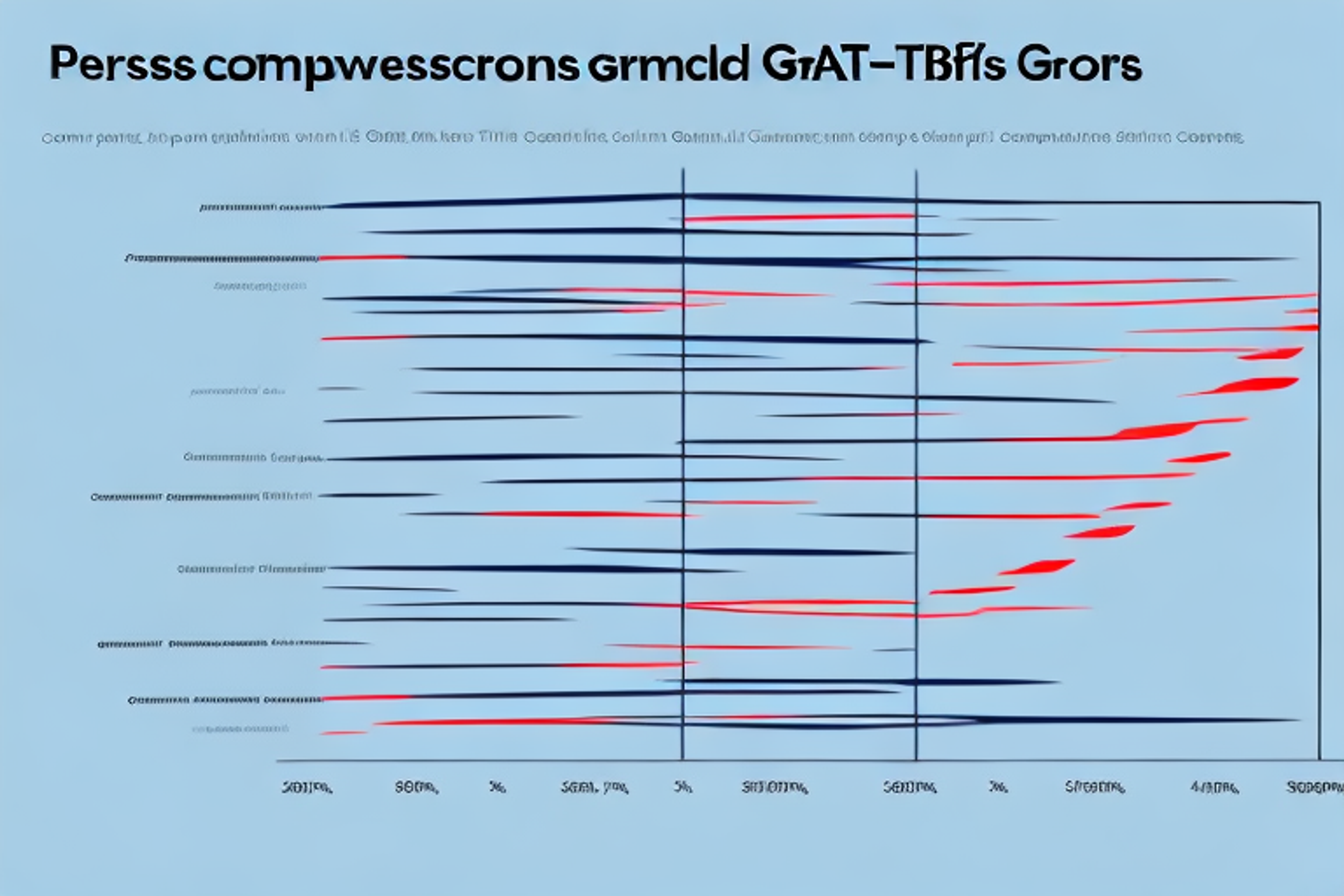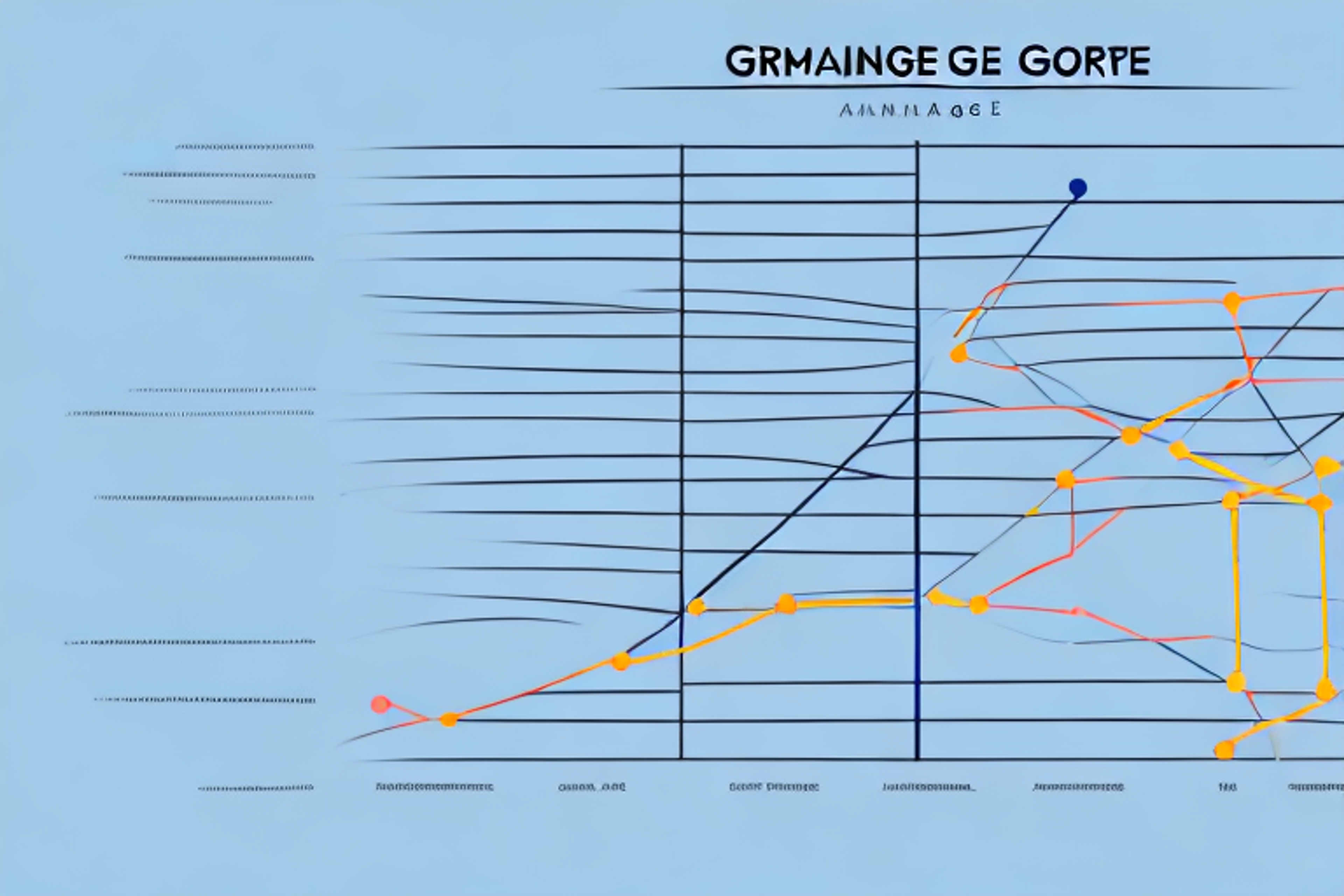
Free Event

Featuring Sujoy Kumar D.
Combinatorics for the GMAT & GRE - Part 1
Starting Saturday, March 29
1:30 AM UTC · 90 minutes

Featuring Sujoy Kumar D.
Table of Contents
If you're applying to business school, chances are you've heard the term "GMAT percentile" thrown around quite a bit. But what exactly do GMAT percentiles mean, and how do you calculate them? In this article, we'll provide a comprehensive guide to understanding GMAT percentiles, their importance in MBA admissions, and how to interpret your own GMAT score report.
Understanding GMAT Scoring: A Comprehensive Guide
Before we dive into GMAT percentiles, it's important to have a basic understanding of how the GMAT is scored. The exam consists of four sections: analytical writing assessment, integrated reasoning, quantitative reasoning, and verbal reasoning. Each section is scored separately, and the scores are combined to give you a total score out of 800.
But what does that total score actually mean? In short, your GMAT score represents your aptitude for business school. Admissions officers use GMAT scores as a way to gauge your potential to succeed in a rigorous academic program.
It's important to note that while a high GMAT score can certainly improve your chances of getting into a top business school, it's not the only factor that admissions officers consider. Your undergraduate GPA, work experience, and personal essays are also important components of your application. Additionally, some schools may place more emphasis on certain sections of the GMAT than others, depending on the specific program and its requirements.
The Importance of GMAT Percentiles in MBA Admissions
So, where do GMAT percentiles come in? Essentially, GMAT percentiles are a way to compare your score to the scores of other test-takers. For example, if you score in the 80th percentile, it means that you scored better than 80% of all test-takers.
In MBA admissions, GMAT percentiles are often used as a way to evaluate how competitive a candidate is in comparison to other applicants. Admissions officers typically look for candidates who score in the 80th percentile or higher, but keep in mind that GMAT scores are just one aspect of a candidate's application.
It's important to note that GMAT percentiles can vary depending on the year and the pool of test-takers. For example, a score that puts you in the 80th percentile one year may only put you in the 70th percentile the next year if more high-scoring test-takers take the exam. Admissions officers take this into consideration when evaluating GMAT scores.
Additionally, some MBA programs may place more emphasis on GMAT scores than others. It's important to research the specific programs you're interested in to understand their admissions criteria and how they weigh GMAT scores in the overall application process.
What Percentile Should You Aim for on the GMAT?
So, what percentile should you aim for on the GMAT? The answer depends on the schools you're applying to and your own personal goals. Some schools have minimum GMAT score requirements, while others may place more emphasis on other factors such as work experience and letters of recommendation.
That being said, a good rule of thumb is to aim for a score in the 80th percentile or higher. This will ensure that you're competitive among other applicants and have a strong chance of being accepted into your desired program.
However, it's important to note that a high GMAT score alone does not guarantee admission into a top business school. Admissions committees also consider factors such as your undergraduate GPA, work experience, extracurricular activities, and personal essays. Therefore, it's important to focus on developing a well-rounded application that showcases your strengths and achievements in all areas.
How to Calculate Your GMAT Score and Percentiles
Now, let's get into the nitty-gritty of how to calculate your own GMAT score and percentiles. Your GMAT score report will provide you with two different percentiles: your overall percentile and your sectional percentile. Your overall percentile is calculated based on your total score, while your sectional percentiles are calculated based on your scores in each individual section.
For example, let's say you scored a 720 on the GMAT. Your overall percentile would be determined by comparing your score to the scores of all test-takers, and your sectional percentiles would be determined by comparing your scores in each section to the scores of test-takers who took that same section.
It's important to note that the GMAT is a computer-adaptive test, meaning that the difficulty of the questions you receive will be based on your performance in previous sections. This means that if you answer a question correctly, the next question will be more difficult, and if you answer a question incorrectly, the next question will be easier. This is why it's crucial to answer as many questions as possible, as each question can have a significant impact on your final score.
Additionally, it's worth mentioning that the GMAT score range is between 200 and 800, with the average score being around 550. However, the score requirements for different business schools can vary greatly, with some top schools requiring scores in the 700s. It's important to research the score requirements for the schools you're interested in and aim to achieve a score that will make you a competitive applicant.
How to Interpret Your GMAT Score Report
So, what do all those numbers and percentiles on your GMAT score report actually mean? Here's a breakdown:
- Total score: This is your overall score out of 800.
- Overall percentile: This is the percentage of test-takers who scored lower than you.
- Section scores: These are your individual scores in each section.
- Sectional percentiles: These are the percentiles for each individual section.
How Do Business Schools Use GMAT Percentiles in the Admissions Process?
As mentioned earlier, admissions officers use GMAT scores and percentiles to evaluate how competitive a candidate is among other applicants. But how exactly do schools use this information?
Generally speaking, a high GMAT score and percentile can help you stand out among other applicants and may increase your chances of being accepted into your desired program. However, keep in mind that GMAT scores are just one aspect of your application and that schools also consider other factors such as work experience, essays, and letters of recommendation.
Breaking Down the GMAT Scoring Scale: What You Need to Know
Here's a breakdown of the GMAT scoring scale and what each range means:
- 800: Perfect score
- 700-790: Excellent score
- 600-690: Above average score
- 500-590: Average score
- Below 500: Below average score
Tips for Improving Your GMAT Percentile Ranking
So, how can you improve your GMAT percentile ranking? Here are some tips:
- Take practice tests to familiarize yourself with the exam format and questions.
- Focus on your weak areas during test preparation.
- Develop a test-taking strategy to maximize your time and accuracy.
- Consider hiring a tutor or taking a test preparation course.
Comparing Your GMAT Percentile to Other Test Takers: What It Means for You
When comparing your GMAT percentile to other test-takers, it's important to keep in mind that every individual has different strengths and weaknesses. Just because someone else scored higher than you doesn't necessarily mean they're a better fit for business school or that you can't succeed in a top program.
That being said, having a high GMAT percentile can certainly help you stand out among other applicants and can increase your chances of being accepted into your desired program.
The Role of GMAT Percentiles in Scholarship Opportunities
Finally, it's worth noting that GMAT percentiles can also play a role in scholarship opportunities. Some schools offer scholarships based on GMAT scores and percentiles, and having a high percentile can increase your chances of receiving financial assistance.
Understanding the Differences Between Average, Median, and Top Scores on the GMAT
When discussing GMAT percentiles, you may also hear terms like "average score", "median score", and "top score". Here's what these terms mean:
- Average score: The average score is the mean score for all test-takers.
- Median score: The median score is the score that falls exactly in the middle of all test-takers.
- Top score: The top score is the highest score achieved by any test-taker.
Keeping these terms in mind can help you understand where you stand in relation to other test-takers and what your score means in the context of the GMAT exam as a whole.
Why a High GMAT Percentile Can Help You Stand Out Among Other Applicants
To sum it all up, having a high GMAT percentile can help you stand out among other applicants and increase your chances of being accepted into your desired program. While GMAT scores are just one aspect of your application, they are an important one. By aiming for a score in the 80th percentile or higher and following the tips outlined in this article, you can position yourself as a competitive candidate and increase your chances of success.
How to Strategize Your Test Preparation Based on Your Target Percentile
Finally, it's worth noting that you should strategize your test preparation based on your target percentile. If you're aiming for the 90th percentile, for example, you'll likely need to devote more time and effort to test preparation than someone who is aiming for the 70th percentile.
Additionally, keep in mind that not everyone needs to aim for the same percentile. Your target percentile will depend on your own personal goals and the schools you're applying to. By doing your research and understanding what each school is looking for in a candidate, you can customize your test preparation and maximize your chances of success.











